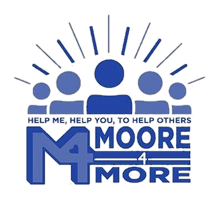Overview
The TEF program, initiated by Moore 4 More (M4M), is a comprehensive initiative aimed at providing support and resources to the families of students enrolled in our programs. Originally launched as an Adopt A Family initiative focused on delivering essentials during the holiday season, the TEF program has evolved into a multifaceted approach that emphasizes the holistic well-being, education, and economic empowerment of families.
Key Components:
1. Economic Empowerment: The TEF program offers resources and opportunities to help families improve their financial literacy, access economic opportunities, and achieve financial stability. This includes financial education workshops, access to banking services, and assistance with budgeting and saving.
2. Educational Support: We provide educational resources, workshops, and programs to support parents in furthering their education and enhancing their skills. This includes access to adult education classes, vocational training, and scholarship opportunities.
3. Holistic Well-being: The program addresses the physical, mental, and emotional well-being of families through access to healthcare resources, counseling services, and wellness initiatives. This includes partnerships with healthcare providers, mental health professionals, and community organizations to ensure families have access to the support they need.
4. Community Engagement: We foster connections and collaboration within the community through networking events, support groups, and partnerships with local organizations. This includes organizing community events, volunteer opportunities, and initiatives to promote social cohesion and support networks.
5. Long-Term Impact: The TEF program measures and tracks the long-term impact on family outcomes, including economic mobility, educational attainment, and overall well-being. This includes ongoing evaluation and assessment to ensure the program is meeting the needs of families and achieving its objectives.
Through the TEF program, M4M is committed to creating a supportive and empowering environment for families, ultimately leading to positive outcomes for both the families and the students enrolled in our programs. By addressing the needs and challenges faced by families, we aim to create a pathway to success and prosperity for all members of the community.
